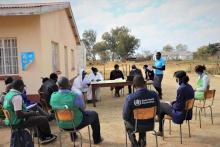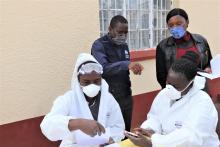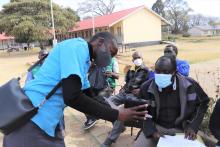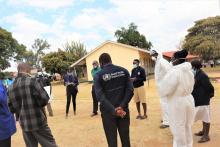Seke District Rapid Response Team (DRRT) supports Beatrice Isolation Centre COVID-19 case management, investigation and contact tracing
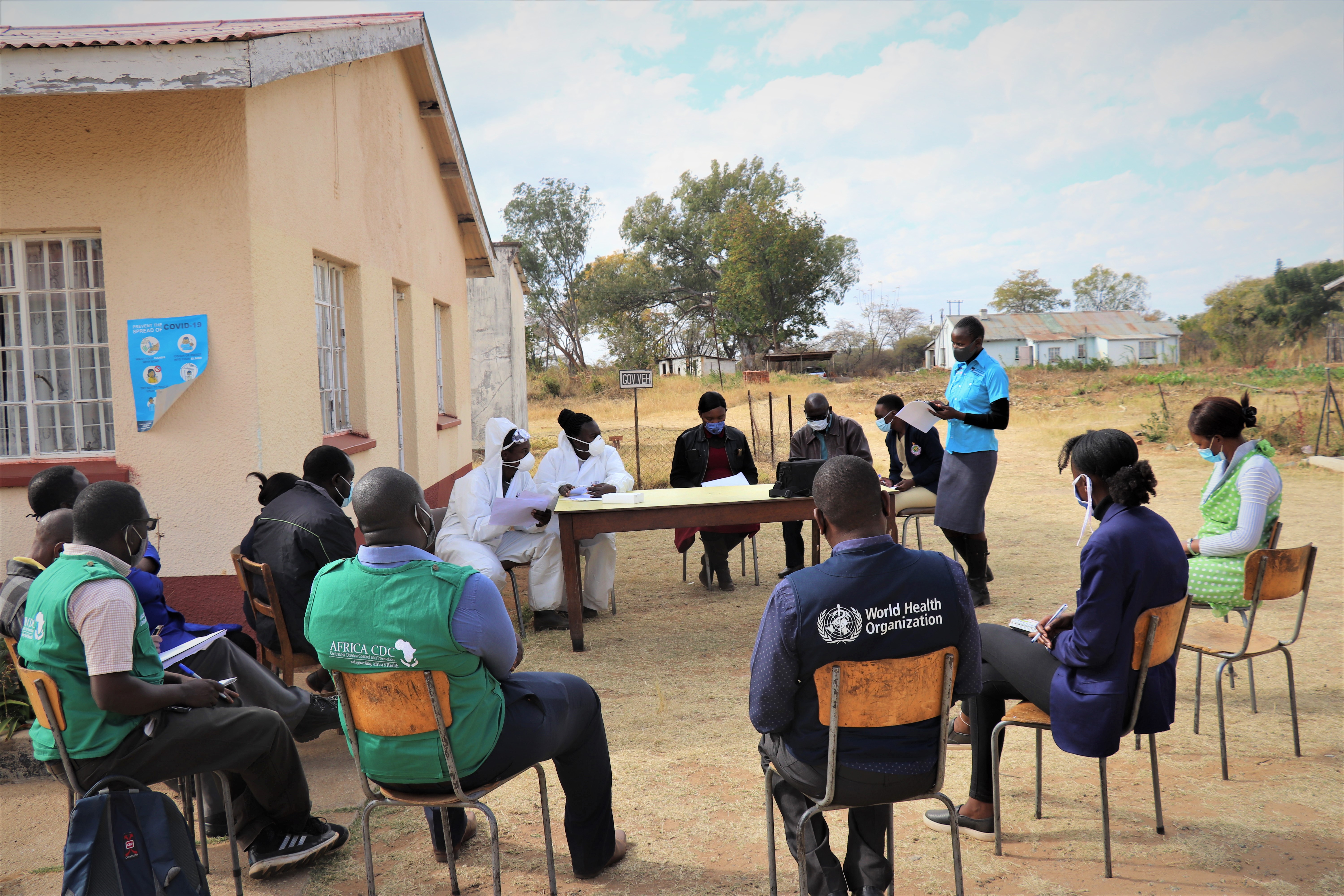
By Tatenda Chimbwanda
Beatrice, Zimbabwe - A drastic increase in the number of confirmed COVID-19 cases in Mashonaland East Province was recently observed with a major chunk of reported cases from Seke District. The cases moved from 56 to 82 in a week with 21 of the 26 new cases coming from Seke District. Beatrice National Rehabilitation Centre is the only isolation center for the whole of Seke District monitoring the new 21 cases. Moreover, the District Rapid Response (DRRT) Team which falls under Ministry of Health and Child Care (MoHCC) with the responsibility of investigating any rumors or suspected cases recently learned of the new 21 positive cases at Beatrice Isolation Centre which had not been fully investigated and entered into the National Database.
“In order for us to break the COVID-19 chain of transmission it is important for all the potential contacts of the new 21 cases to be systemically followed up on. Therefore, we had to immediately visit Beatrice isolation center and enter these new cases into the National Database and further support them with case investigation,” explained Tracy Chigumba, DRRT officer from Marondera District Hospital.
With financial backing from United Kingdom's Department for International Development (DfID)/ UKAid, WHO supported DRRT visit to the Beatrice Isolation center. Moreover, African Union Center for Disease Control and Prevention (AU CDC) was also present and conducted a need assessment of Beatrice Isolation center. During the visit, DRRT officer Tracy expressed shock when she learned that prior to her visit, the staff at Beatrice Isolation center were unaware of what case investigation entails.
“The reason why we have not submitted any case investigations forms of our 21 cases is because we had no idea they even existed” says Mr. Tonde Sigauke the Principal in charge of Beatrice Isolation Centre.
As part of the visit, the DRRT officer conducted and facilitated a training session on the completion of the case investigation manual forms as well as the submission of such into the National Database using the Open Data Kit (ODK) Software. The ODK software is a free and open software used for collecting, managing and using data in resource constrained environments. DRRT member, Tracy also refreshed the trainee’s memory on the best Infectious Prevention Control (IPC) measures the isolation center should be guided by. Beatrice Isolation center staff was also assisted with entering their 21 new cases into the National Database. In addition, WHO took this opportunity to hand over two tablets to the center which they used during the training and will thereafter keep in order to submit any new cases into the National Database going forward.
WHO complimented DRRT’s training by conducting the practical session of data entry into the new tablets. Both DRRT and WHO were also impressed by the great turn out of training participants. DRRT had only anticipated to train the Beatrice Isolation Centre Staff. However, staff from Beatrice Rural Hospital such as doctors and nurses also attended the training as they were also eager to learn more about case investigation and contact tracing.
They expressed gratitude to the DRRT as well as WHO for equipping them with knowledge and skills as well as for the latter’s benevolence in providing the two tablets.
“I am so glad the DRRT team and WHO visited our isolation center today and left us with manual forms and two tablets. The training has not only left us pregnant with information on COVID-19, tablets and case management. The visit has also motivated us as it is the first form of training we have received and it really made us feel like we are not alone in this fight against COVID-19” noted Mr Sigauke.
The training DRRT officer Tracey led at Beatrice Isolation center falls under Pillar 3, Surveillance, Rapid Response Teams and Case Investigation of the COVID-19 National Response Team. Its overall objective is to rapidly detect, investigate and isolate cases, identify, quarantine and monitor contacts to control the transmission of COVID-19.
This follows trainings of DRRTs in Mashonaland East on COVID-19 Surveillance, Case Management and IPC which Tracey attended a few months ago which were facilitated for by WHO. Tracey has been able to further share her knowledge through trainings such as the one she conducted at Beatrice Isolation Centre and continues to support case investigation and overall COVID-19 response in Seke District.
Furthermore, the DRRT continues to support Beatrice Isolation center with Personal Protective Equipment (PPE) and food supplies. WHO concluded the training by providing technical guidance to AU CDC on overall COVID-19 response and supported the need assessment of Beatrice Isolation Center. WHO outlined the key gaps AU CDC and partners should priorities in their support such as strengthening individual case management at the isolation center, isolation of cases and quarantine of contacts, continued provision of essential health services, active surveillance and responding to community alerts.
